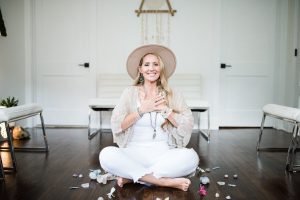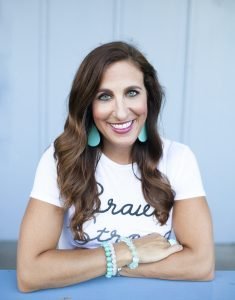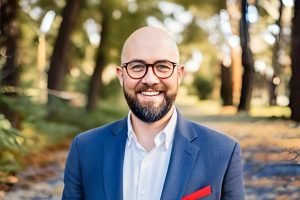Last updated on May 22, 2023
Jeffrey Siegel’s Boston-based coaching practice supports men who want to improve their wellness. We hope you enjoy this interview!
Coaching Focus: Wellness coaching for men ready to build better habits, overcome eating issues, and develop physical and emotional strength.
Location: Boston & Beyond
Connect: You can find Jeffrey online at his website, as well as on Instagram, Facebook, and LinkedIn.
Tell us about your journey as a coach.
I was a college teacher for many years and found that students kept visiting my office with issues.
However, these weren’t issues with course content, they were issues taking care of themselves – they had trouble sleeping enough, eating well, managing difficult emotions, and tending to their physical and mental health so they could learn.
The upstream issue was a lack of self-care, exacerbated by sociocultural forces that pushed people out of balance and an expectation that it was somehow their fault if they didn’t have superhero stamina to do it all. I decided I wanted to help teach people how to take care of their bodies, minds, and hearts so they could fulfill their potential.
I started my coaching business focusing on men feeling the particular squeeze of social expectations around masculinity, the need to look strong even if they were feeling weak, and the deep dissatisfaction with their mental and physical health. It’s so common to see men place their body and health in the backseat to work, family, and other things life tells men they must succeed at. This path is unsustainable.
Most people know this but lack the knowledge, support, and resources to act upon it. That’s where I come in. I help men build agency to take control of their well-being by developing inner and outer tools for self-care.
We want to destigmatize talking about money, including how much coaches make. Would you please share with our readers any relevant revenue figures from your business?
In my first year of coaching, I probably made $20K. Since then I’ve doubled that number without necessarily working more hours. I’m still not pulling in the “big bucks,” but that’s okay. What’s more important is that I feel like I’m charging what I’m worth, not underselling myself, and still delivering incredible value to everyone I work with. Not every business needs to scale or grow in the same way.
What courses, programs, or certifications have you done? Would you recommend them, and for whom?
Wellcoaches is an industry leader in health and wellness coaching. They’re setting the standard for evidence-based coaching that integrates motivational interviewing, health psychology, and a deep appreciation for the psychological complexity of behavior change.
The Institute for the Psychology of Eating is a training led by teacher and author Marc David. It was a well-thought-out program, and Marc’s wisdom is priceless. He discusses aspects of mind-body nutrition that are rarely talked about. If you’re interested in the intersection of psychology and eating or work with people with poor relationships to food and body, this training is a must.
What advice or perspective might you give to a new coach trying to get her first clients? Any advice they should ignore?
Start with friends or colleagues. Offer them a few free sessions. Tell them you’re working on a practicum for your training. Get practice putting on your “coach hat” and working with real people.
Going from nothing to something is always the hardest part. The more authentic you can be in terms of who you are and who you serve, the easier it will be to attract the right people. Patience can be hard to come by in the beginning, but if you trust that you’re putting out messages that are genuine, the right client will show up.
What are your thoughts on “choosing a niche” as a coach?
For a long time, I resisted choosing a niche. This was primarily due to three factors:
- I didn’t want to lose clients
- I was overly optimistic about my ability to help everyone
- I lacked self-awareness for whom I was suited to best serve
I was afraid of losing out on potential clients. The idea of limiting who I worked with seemed antithetical to building up a business clientele.
I genuinely felt that I could serve everyone and did not want to exclude particular people. I think this is born from immature optimism or naivety. As they say, when you are starting out you tend to overestimate your abilities. As you journey from novice to expert, the boundaries and limits of your knowledge become more clear.
I think this is true for coaches as they progress on their journey from novice to experienced coach. It took me many years to clearly see who I was best suited to serve. I now have a much better idea of who I want to work with and who is best suited to work with me. This allows me to say no to clients who I don’t think are a good fit.
What books have significantly influenced your life? What are your key takeaways from these books?
Two books that I return to regularly are Darkside of the Light Chasers by Debbie Ford, and The Gift of Our Compulsions by Mari O’Malley.
These two books go into our wounds and trauma history.
I think doing shadow work is so important for coaches. We need to “clean up” so we can understand how inner barriers may show up for others and so we don’t unconsciously project our unprocessed material onto our clients.
If you received an extra $10,000 to spend on your business, how would you spend it and why?
Right now I would invest in building new coaching offerings—group coaching, online courses, and on-demand videos. I would also invest in an SEO agency to help drive organic traffic to my website and ensure that people can find me and the resources they need for their healing journey.
What are some of your favorite affirmations, mantras, thoughts, and/or journal prompts currently? Why?
Often it goes something like this: Have I been here before? If so, do I know my habitual choice? Does my habitual choice lead me to where I want to go? Am I willing to risk a new way? What do I need to let go of to make that choice? What do I need to trust? Who/what do I forgive? Who would I be without this thought?
I’m also a big fan of mirror work by motivational speaker Lisa Nichols. She recommends looking in the mirror every morning and listing out things that you are proud of, that you forgive yourself for, and that you commit to for the day ahead. I find this to be challenging and incredibly powerful.
When you feel overwhelmed, stressed, or have lost your focus or motivation, what do you do?
Movement is my salve and self-care. Going for walks, stretching, myofascial release, and other forms and exercise are my favorite ways to release stress-energy and shift my main body into a new state.

I also use meditation and breath work as tools to get grounded in something that feels more loving and beautiful than whatever episode of stuckness or frustration might be coming up for me at the moment.
Do you have any examples of how a “failure” set you up for later success?
As a culture, I think we’re terrible at failing. We don’t give people permission to fail, and this is a huge problem. It prevents people from taking risks and learning. I see this for all ages, from young kids to adults.
But I’ve learned that most failures aren’t as painful or as difficult as we might worry about. Often, it’s more about failing to meet our own unrealistically high expectations than it is truly failing others. The first step is recognizing that we all have a deep desire to satisfy others as well as ourselves, and that this pressure is both real and imaginary at the same time. Then we need to reframe failures as opportunities for growth. It’s all just data to help us grow and learn.
Do you have any embarrassing (at the time) stories from your work as a coach? Or a time when putting yourself out there really paid off?
I remember when I decided to “fire“ my first client. He was not agreeing to the conditions we set up for our coaching relationship and I was feeling very frustrated by the whole process. I gave him a warning and told him that if he wasn’t willing to show up to sessions on time, come prepared, and truly give his best effort, I didn’t think that we could continue to work together.
When I finally mustered up the courage to tell him that it was time to end our coaching relationship, he responded, “I’ve been waiting for you to tell me this for months now. Why did it take you so long?“
I felt so embarrassed at the moment. Why had I been too cowardly to say what I truly felt? Moreover, saying this was ultimately what he already knew and needed.
If you could put a message on a huge billboard—getting a message out to millions—what would it say and why?
“Your body is asking for you. Come home.”
Is there anything else you’d like to add?
Who I am as a coach is still evolving. I am a work in progress. Allow yourself to be in formation as well. I hope to look back on this in a few years and smile. I expect to have new perspectives that might make some of these responses seem naive or shortsighted. I also want to thank this version of myself for taking the steps to get me to that next level, however messy and confusing the journey might have been.
The Life Coach Magazine staff is your team for high-quality content on topics from personal development, to coaching tips, to how to grow your coaching business.










Be First to Comment